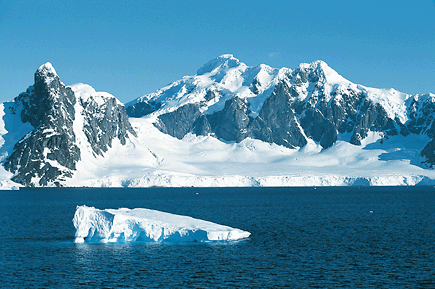HOW Cold?
Thursday, December 12th, 2013December 12, 2013
The cold temperatures currently griping most of the United States have nothing on the coldest temperature ever registered on Earth—a skin-freezing, bone-numbing, lung-paralyzing -135.8 °F (-93.2 °C) recorded on August 10, 2010, in Antarctica. That’s 50 degrees colder than any temperature ever measured anywhere in Alaska or Siberia, according to Ted Scambos, the lead researcher on the team that announced the shivery record. It’s even lower than the coldest official temperature recorded on Earth, also found in Antarctica. The average low temperature in Antarctica in July, the height of winter, is about -81 degrees °F (-63 °C).
Scambos, a senior research scientist at the National Snow and Ice Data Center in Boulder, Colorado, and his team identified the temperature extreme while producing the most detailed global-surface temperature maps ever created. The maps are based on thermal radiation readings—that is, the amount of heat given off at the surface—made by Earth-orbiting satellites operated by NASA and the National Oceanic and Atmospheric Administration. The data go back some 30 years.

Antarctica is colder than the icy region of the Arctic Ocean centered on the North Pole. Temperatures in Antarctica almost never rise above 32 °F (0 °C). (© Rod Planck, Photo Researchers)
The record cold temperature was measured in one of a number of “pockets” in the snow between two summits on the Eastern Antarctic Plateau. Scamos and his team aren’t completely sure why these flat areas are colder than areas downhill. As air chills, it usually grows denser. The scientists had expected that the denser air would have slid down the hill to collect at the bottom. But that’s not what has happened. Perhaps, they speculated, the higher-pressure air at the bottom is actually pushing upward, preventing the colder air from coming down. Stuck in place, the air in the pockets keeps getting colder and colder and colder.
Unfortunately, the new measurement won’t qualify as the coldest official temperature ever recorded on Earth. That record, which has stood for more than 30 years, is -128.6 °F (-89.2 °C), taken at the nearby Vostok weather station in July 1983. For official certification, the World Meteorological Organization requires temperature measurements to be taken 6.5 feet (2 meters) above the surface, not at the surface. But Scambos stands by his new record. “I’m confident these pockets are the coldest places on Earth. I wouldn’t be here if I wasn’t pretty sure we were colder than Vostok.”
Meanwhile, the U.S. National Weather Service offers the following advice for staying safe in frigid temperatures:
The best way to avoid hypothermia and frostbite is to stay warm and dry indoors. When you must go outside, dress appropriately. Wear several layers of loose-fitting, lightweight, warm clothing. Trapped air between the layers will insulate you. Remove layers to avoid sweating and subsequent chill. Outer garments should be tightly woven, water repellent, and hooded. Wear a hat because much of your body heat can be lost from your head. Cover your mouth to protect your lungs from extreme cold. Mittens, snug at the wrist, are better than gloves. Try to stay dry and out of the wind.
Additional World Book articles:
- First aid (Frostbite)
- Remote sensing
- Hot and Cold: Staying Healthy in All Weather (a Special Report)



